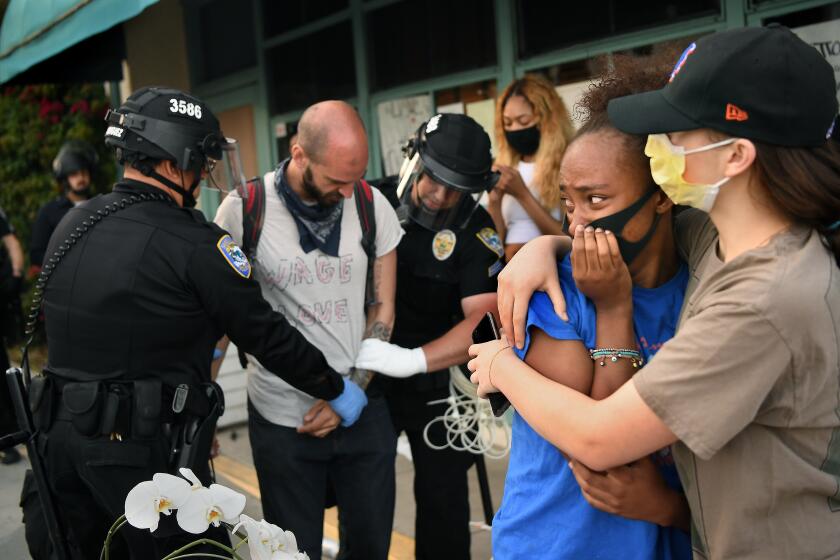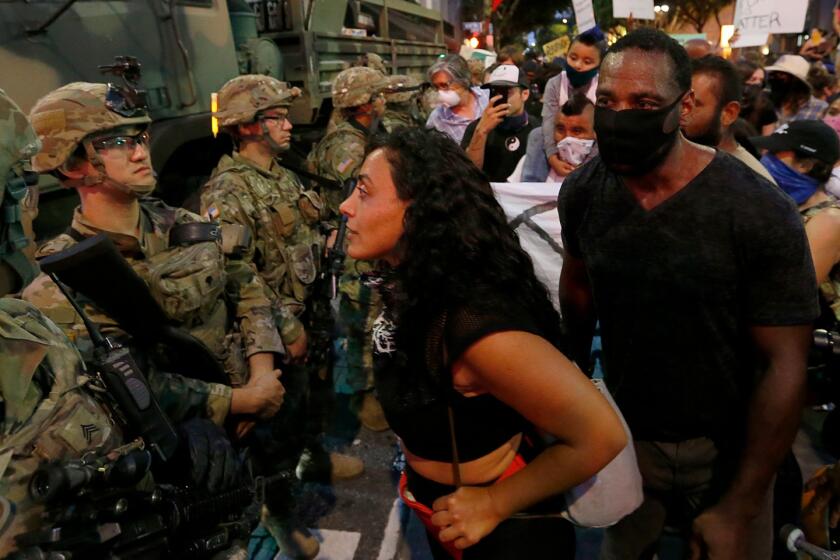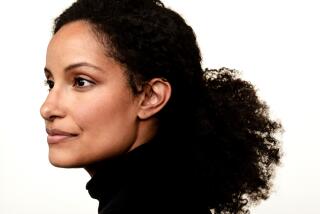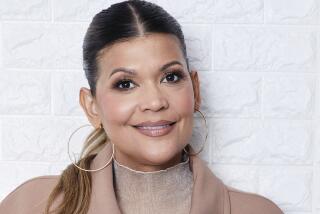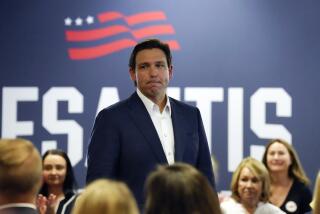‘Antiracist Baby’ helps educate infants about racism. Author Ibram X. Kendi explains how
Ibram X. Kendi, 38, is one the country’s leading proponents of antiracism. He is the founding director of the Antiracist Research & Policy Center at American University in Washington and a contributor for the Atlantic and CBS News. He has written five books, including “Stamped from the Beginning: The Definitive History of Racist Ideas in America,” which won a 2016 National Book Award, and “How to Be an Antiracist,” which is enjoying renewed popularity in this national moment of antiracist protest.
Kendi’s fifth book, out this month, is a departure only in its target audience — which is, to be sure, radically different. “Antiracist Baby” is a colorful board book for the 0-3 demographic, aimed to educate people about race and racism as early in life as possible. While Kendi himself expresses a measured but inexhaustible hope for social change, he believes it has to be seeded by new generations if we are to truly become a more just country. He spoke to us by phone from his home in Washington, D.C.
Memoirs by Kiese Laymon and John Edgar Wideman; essays by Darryl Pinckney and Mikki Kendall; masterpieces from Michelle Alexander and Claudia Rankine.
What inspired this new book specifically? Antiracism is a pretty heavy topic for children.
I have a 4-year-old daughter. She wanted to have a book read to her, I wanted to have a book I could read to her. I’m really excited about the book because I wanted to provide a tool for other parents to have conversations with little children about racism before they can even understand it. The idea is that when they’re older they will have heard so much about it, it won’t be anything mysterious or taboo.
It’s also critically important for us as older people to really educate ourselves very deeply [about racism and antiracism]. Then that will give us the cred to teach it to younger people. There are kids who view darker or lighter skin as beautiful or better. Why do they think that? We need to encourage them to think deliberately, to be deliberate ourselves. If a child says, “Mommy, look at that black poor person,” we need to know how to respond.
You’re reminding me of something a good friend told me that happened many years ago. Her daughter saw a lot of black people going into a restaurant that was popular with black folks, and she asked, “Mommy, why are all those black people going there?” My friend kind of shut down the question as impolite.
When children ask a racial question and we don’t want to talk about it, the message is that race and racism should not be talked about. White parents especially don’t talk about it, because they believe that kids should be colorblind. But studies show that as early as the age of 2 children begin to define people based on race. In many ways the book is geared to both parent and child, to hopefully start that conversation.
How is this book different from those that tell black kids they’re OK, their hair is fine, difference is OK, we’re all the same, etc?
This book specifically talks about equality of the races. That’s very different from books that affirm color or talk about how we can all get along.
A conversation is happening around anti-racism — what it is and what it looks like in practice. Here’s what you should know.
Lots of whites are supporting the current protests against police brutality and racial inequality, which is good. But there is that 45% that supports Trump and what he stands for. What does such a scenario mean for the antiracism movement?
I think there are many white Americans at this moment who have been able to realize that indeed we can have a Donald Trump and an Amy Cooper at the same time. [Cooper is the white woman, a Democrat, who last month falsely reported a black man in Central Park to the police.] The question is whether [the 45%] continue to believe that the greatest threat to America is black criminals and Muslim terrorists, or is the greatest threat to America the very politicians they support? But other people are beginning to see the full scope of racial inequities, and to address that we need antiracist policy.
What would that look like? One thing the pandemic has made clear is that we’re 50 states with 50 different ways of administering everything. When you talk about antiracist policy, are you talking about civil rights?
It could be civil rights or human rights. It depends. But what’s important is to recognize that you can’t have a country founded on racist policy, guilty of a common sin, suddenly one day declare itself not racist, then not have a trained group of people — whether at the national, state or local levels — to ensure the collection of data and respond to racial disparities. If government is serious about instituting antiracist policy, we need people to do that job.
If government is serious. Are you hopeful it’s getting there?
It’s possible for anybody to transform themselves. It’s going to be a matter of time. I don’t know whether every single person can be antiracist by 2030, but I do have hope that every racist policy could be eliminated by then. That would be great.
Get live updates from Los Angeles Times journalists as they report on protests across the U.S. after the death of George Floyd while in police custody.
What do you consider racist policy, beyond the obvious things like police brutality? Are most American policies racist by definition?
A racist policy is any policy that leads to inequity, and antiracist policy is the opposite. It’s critical to start with a definition — and then we go in search of a neighborhood and examine its policies, see what’s going on. Immediate policy changes we’ve seen in the last week have to do with protecting property and police. I’m not necessarily hopeful that elected or public officials are going to be at the forefront of change. The people will have to force change.
You said in a recent article that people need to step into black people’s souls. It strikes me that racism is a spiritual problem because it prevents people from seeing black people’s souls. Are we finally seeing?
It’s one of the things that distinguishes humans, the ability to step into each other’s souls. Because of that, I think racism is becoming more clear. White people are seeing racial injustice, they’re seeing Breonna [Taylor] and George [Floyd], and they’re seeing the cause of death was not Breonna or George; it’s racist policing. Now they are seeking to transform the policy, and that’s a good thing.
Do you have any forthcoming projects that don’t involve antiracism?
I’ll continue with this work. There’s a lot of it left to do.
Erin Aubry Kaplan is a contributing writer to Opinion.
More to Read
Sign up for our Book Club newsletter
Get the latest news, events and more from the Los Angeles Times Book Club, and help us get L.A. reading and talking.
You may occasionally receive promotional content from the Los Angeles Times.
